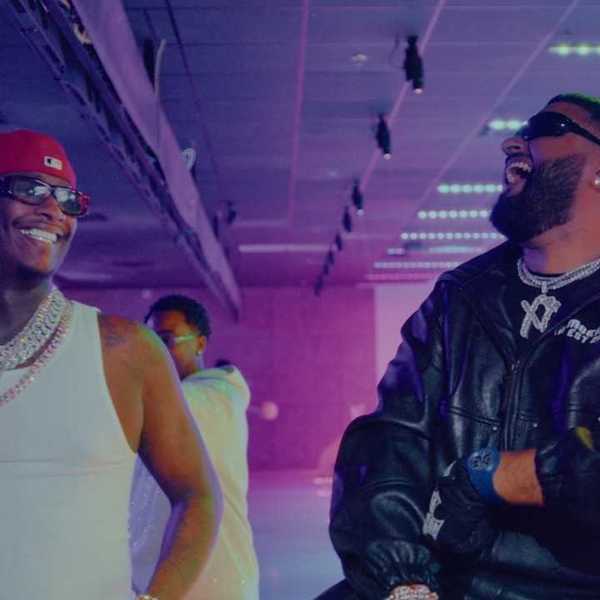McCoy Tyner: Reaching Fourth
Legendary jazz pianist McCoy Tyner, a longtime member of John Coltrane’s quartet, died on March 6, at 81. Here's an interview conducted by FYI's Bill King in 1992.

By Bill King
Legendary jazz pianist McCoy Tyner, a longtime member of John Coltrane’s quartet, died on March 6, at 81. Here's an interview conducted by FYI's Bill King in 1992.
Our listening experiences are teaching moments, especially when you are a 16-year-old finding your way around an instrument. I’m thinking back to 1962-63 and the John Coltrane Quartet.
My brain was absorbed with pianist Oscar Peterson and composer Stravinsky – two opposites and both yielding enough territory in-between to allow an imagination cycle - recycle and invent. Learning for me was all about gathering, processing, and making sense of the world around me. Music practice, much like reading a book, one can shut-out the universe beyond pages of mundane scales - adjectives, adverbs, and dangling participles and explore a lost continent buried deep in the cerebellum under useless layers of sales pitches, and paved over fractured memories.
Coltrane put together what would be one of the most versatile, innovative quartets of the era. At the root of the new sound - modal improvisation and harmony spread in fourths propelled by orbital angular momentum. Both Reaching Fourth, released in 1962, and Fly Like The Wind in 1977 became my “academy of higher piano learning” and Coltrane sideman, pianist McCoy Tyner, my tenacious instructor. Tyner never gave up on me even when I tried to made sense of his intricate soloing patterns and thunderous accompaniment.
When you think about the evolution of piano, the early sixties ushered in a radical change in concepts and possibilities. Keith Jarrett, Chick Corea, and Herbie Hancock, along with Tyner, became the dynamic four after a brief fling with transitional pianist Bill Evans. Jarrett – the folklorist, Corea - that Spanish thing, Hancock – the Prokofiev of jazz, and Tyner – that muscular mid-century Jack Johnson of the piano, relentlessly pounding the keys - spinning aural geometric shapes. Tyner passed away March 6, 2020 – age 81.
I caught up with Tyner in 1992 and asked him about things a grown man would ask with a 16-year-old boy’s enthusiasm.
Philadelphia born pianist McCoy Tyner burst onto the jazz scene in 1959 in Benny Gibson and Art Farmers’ group, Jazztet. A year and a half later, he joined the John Coltrane Quartet, cutting several recordings for Impulse and Blue Note during his five-year stay. Throughout the ‘70s, Tyner heightened his reputation as a leader and composer, recording various small groups for Milestone. In 1980, he put his arranging skills out front, forming a big band that continues to perform and record to this day. Tyner’s latest addition to his ever-expanding discography at the time of our interview was a Birdology/Polygram recording entitled Journey.
BK: Is your approach to orchestration for the big band an extension of your style of accompaniment?
McCoy: Yes, I would say it’s an extension of my piano playing. I look at it in various ways, but it’s essentially that.
BK: Was Greensleeves from Coltrane’s Africa Brass album your first recorded orchestration using French horns and a trumpet?
McCoy: Yes, it was. I didn’t even get credit for it on the record. I wrote for three French horns and a trumpet. It was great to hear it back. John was trying to get me to do more writing. He recognized I had talent in that direction and encouraged me.
BK: Are you less conservative with your writing today than you were in the early years?
McCoy: I know more now. I’m concentrating on it right now because I have the big band, but I never really planned on having such a unit. I always thought I would put one together just for special occasions.
We don’t work that much, but enough to keep us functioning. We’ve done three tours of Europe and a lot of the festivals in the U.S. The logistics of touring with this band are complicated. It’s like moving to a small country, so it’s costly.
Europe has been quite accommodating and financially capable of supporting us, but in the U.S., it has been a lot more complicated. We’ve done the Playboy, Monterey and Newport festivals, but have had none of the long runs as we have in Europe.
BK: Do you have a configuration of instruments you prefer writing for, or are you always searching for fresh combinations?
McCoy: Actually, the band is set now because I like the particular sound we have. A lot of guys double. I can reach deep into the band and get many combinations.
BK: You’re diplomatic with the arranging chores, allowing fellow musicians and orchestrators a hand at shaping your sound. Have you always been so generous?
McCoy: I involve the musicians in the fabric of the band so they can feel comfortable. If they bring in a composition that works, we use it. Even though I’ve written quite a few pieces for the band, I think we now have the repertoire to the point where I’ll have to do more writing. On the next album, there’s a particular concept I want to see happen, so I’m going to have to write it myself. I won’t alter the basic sound, but it will be different.
BK: Do you still listen to composers like Stravinsky and Debussy for inspiration?
McCoy: I’ve always liked strings. Fly With The Wind was my first major project with them. It was something that was always in the back of my mind, an accumulation of all the other music I’d absorbed.
I would like to do more string writing and work with voices as well. My previous projects showed me I could handle it. I’ve been a pianist all my life, but I’ve always tried to develop in other directions.
BK: Do you do a lot of pre-production for your recordings?
McCoy: Well, I know what type of album I want to do for my next project. That much is clear. I just completed a recording of duets with Bobby Hutcherson for Blue Note, but my next one is going to be more contemporary.
BK: Much has been written about Coltrane’s revolutionary recordings of the ‘60s, but the same could be said about your trio albums, especially Reaching Fourth. While the industry was focused on Bill Evans, do you think they missed the importance of these trio dates?
McCoy: I don’t know. In my mind, the press does what it wants to do. Magazines focus on who they want to promote. I don’t pay much attention to that.
I think the press is essential and has been very kind to me over the years, but when they decide to get excited about someone, you see that person everywhere. It all depends on who’s the choice that year. I was one who was always determined never to let things like that affect me.
BK: You play with such physical strength. How have your hands been able to survive the wear and tear?
McCoy: It’s the extra skin on some of the fingers.
BK: Do you do most of your playing in concert, limiting practice time?
McCoy: I don’t practice. I mainly use the piano for composing. I’m always working, so I get to play a lot.
BK: What importance does spirituality play in your music and life?
McCoy: I believe it depends on the individual. Spirituality has to be part of one’s personality. I’m not a religious person. It’s just a level of consciousness.
BK: For many people, music can be an effective way to channel one’s creative energy, often producing magnificent results. Do you think more emphasis should be placed on investing in the arts as a means to raise the self-esteem of disaffected youth?
McCoy: I think Europe has set a precedent. I’m not speaking of England, but the rest of the continent which has invested a lot of money in presenting the arts. Even with the current economic situation, the Europeans never forget the arts. It’s not the last thing to be considered.
Over the years, I have thought about spending more time there. I have met many American musicians working in Europe, blues singers, and jazz artists who are playing there but can’t make a living in the U.S.

















